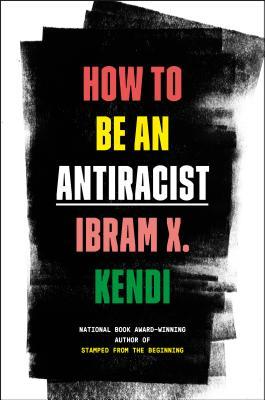Book notes: How to Be An Antiracist
How to Be an Antiracist
by Ibram X. Kendi
Read
Oct 23, 2019 -
Nov 22, 2019
⭐⭐⭐⭐⭐
Ibram Kendi’s How To Be An Antiracist is the rare flowing read about a thorny topic. It is a remarkable book, rigorous and full of humanity.
How To Be An Antiracist devotes each chapter to one aspect of racism (class, gender, sexuality, etc), opening with a crisp definition of the terms about to be discussed. I found this a very effective way to both introduce the topic, and to make sure the reader is on the same page as the writer about the meaning of the words used. As Kendi puts it:
Definitions anchor us in principles. This is not a light point: If we don’t do the basic work of defining the kind of people we want to be in language that is stable and consistent, we can’t work toward stable, consistent goals.
Kendi’s writing is clear and forthright, kind without letting us off the hook. He draws us in with stories from his personal journey towards antiracism, and is empathetic towards the mistakes we’re bound to make along the way:
“Racist” and “antiracist” are like peelable name tags that are placed and replaced based on what someone is doing or not doing, supporting or expressing in each moment. These are not permanent tattoos. No one becomes a racist or antiracist. We can only strive to be one or the other.
This book goes beyond discussing racism as an isolated phenomenon, and illuminates the many ways in which racism intertwines with other extractive and discriminatory ideas. Kendi calls on us to understand that these ills cannot be fought separately. On capitalism, he writes:
The idea that capitalism is merely free markets, competition, free trade, supplying and demanding, and private ownership of the means of production operating for a profit is as whimsical and ahistorical as the White-supremacist idea that calling something racist is the primary form of racism. […] Capitalism is essentially racist; racism is essentially capitalist. They were birthed together from the same unnatural causes, and they shall one day die together from unnatural cases. Or racial capitalism will live into another epoch of theft and rapacious inequity, especially if activists naively fight the conjoined twins independently, as if they are not the same.
Kendi closes the book with reflections on what are effective methods of combating racism, and an exhortation to all of us to choose which side we stand on:
The problem of race has always been at its core the problem of power, not the problem of immorality or ignorance. Moral and educational suasion breathes the assumption that racist minds must break changed before racist policy, ignoring history says otherwise. … Changing minds is not a movement. Critiquing racism is not activism. Changing minds is not activism. An activist produces power and policy change, not mental change.
I felt energized and challenged by How To Be An Antiracist.
Here is one final quote to remember:
There is no such thing as a nonracist or race-neutral policy. Every policy in every institution in every community in every nation is producing or sustaining either racial inequity or equity between racial groups.
